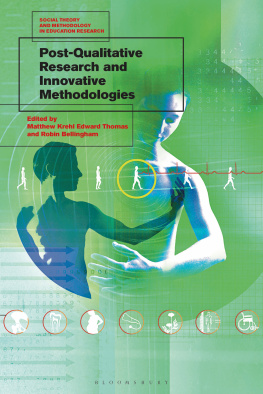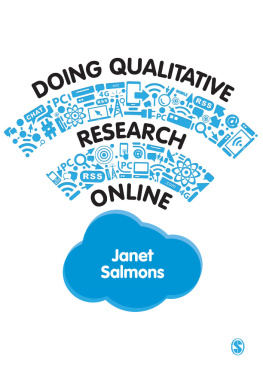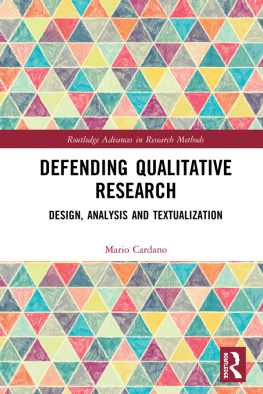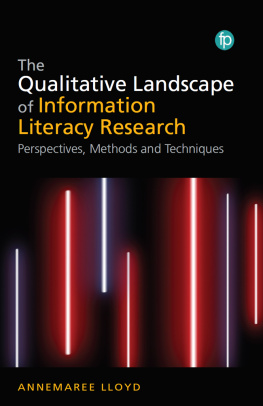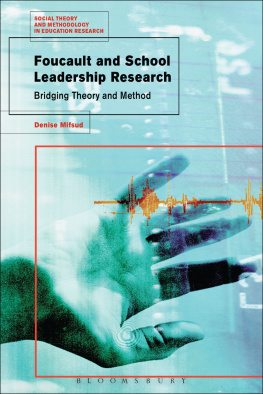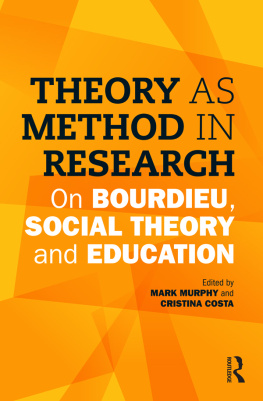Post-Qualitative Research and Innovative Methodologies
Social Theory and Methodology in Education Research series
Edited by Mark Murphy
The Bloomsbury Social Theory and Methodology in Education Research series brings together books exploring various applications of social theory in educational research design. Each book provides a detailed account of how theory and method influence each other in specific educational research settings, such as schools, early childhood education, community education, further education colleges and universities. Books in the series represent the richness of topics explored in theory-driven education research, including leadership and governance, equity, teacher education, assessment, curriculum and policy studies. This innovative series provides a timely platform for highlighting the wealth of international work carried out in the field of social theory and education research, a field that has grown considerably in recent years and has made the likes of Pierre Bourdieu and Michel Foucault familiar names in educational discourse. Books in the Social Theory and Methodology in Education Research series offer an excellent resource for those who wish to use theoretical concepts in their research but are not sure how to do so, and who want to better understand how theory can be effectively applied in research contexts, in practically realisable ways.
Also available in the series
Foucault and School Leadership Research , Denise Mifsud
Education Governance and Social Theory , edited by Andrew Wilkins and Antonio Olmedo
International Perspectives on Theorizing Aspirations , edited by Garth Stahl, Derron Wallace, Ciaran Burke and Steve Threadgold
Education Research with Bourdieu , Julie Rowlands and Shaun Rawolle
Norbert Elias and the Sociology of Education , Eric Lybeck
Poststructuralist Theory and Educational Research , Tim Jay
Social Theory for Teacher Education Research , edited by Kathleen Nolan and Jennifer Tupper
Social Theory and the Politics of Higher Education , edited by Mark Murphey, Ciaran Burke, Cristina Costa and Rille Raaper
Forthcoming in the series
Subjectivity and Social Change in Higher Education , Liezl Dick and Marguerite Mller
Poststructuralist Theory and Educational Research , Tim Jay
Post-Qualitative Research and Innovative Methodologies
Edited by Matthew Krehl Edward Thomas and Robin Bellingham

Contents
Mark Murphy
Education research has a long history of adapting ideas from social theory. While this has always been the case when it comes to educational foundations, in recent years there has been an enormous growth in the adoption of social theory in the field of educational research. The names of theorists such as Pierre Bourdieu, Jrgen Habermas, Judith Butler and Michel Foucault have become commonplace in the field, making social theory evermore familiar to those who both conduct education research and utilize it in their teaching.
As its familiarity increases, so too does the desire to engage with social theory in more thoughtful and effective ways. There is currently a pressing desire to apply social theory in educational research contexts, which makes sense, as without theory, much education research can be overly descriptive and/or restricted by narrow definitions of professional practice. Social theory can assist in efforts to transcend the everyday taken-for-granted understandings of education, while also reflecting erstwhile concerns around power, control, social justice and transformation.
The issue then becomes one of applying theory to method, with the focus shifting to a growing interest in the art of application itself. This interest comes with a set of key questions attached:
How best to apply concepts such as habitus, subjectivation and performativity in educational research contexts?
What are the ways in which methodological concerns meet theoretical ones?
In what ways does social theory shape the quality of research outcomes?
These questions require thoughtful responses and the purpose of this book series is to help provide solutions to these issues, while also helping to develop the capacity, in particular of postgraduate and early career researchers, to successfully put social theory to work in research. This is especially important as theory application in method is a challenging and daunting enterprise. The set of theories developed by the likes of Foucault, Jacques Derrida, Bourdieu et al., could never be described as simple or easy to navigate. On top of that there are a variety of issues faced when applying such ideas in research contexts, a field of complex interwoven imperatives and practices in its own right. These challenges epistemological, operational, analytical inevitably impact on researchers and our attempts to make sense of research questions, whether these be questions of governance and political regulation, social reproduction, power, cultural or professional identities (among others). So care needs to be taken when applying a challenging set of ideas onto a challenging set of practices, incorporating a consideration for both intellectual arguments alongside the concerns of the professional researcher.
The series should hold a strong appeal to the growing numbers of researchers who are keen to apply social theory in their research, as evidenced by the growing audience for the editors own website www.socialtheoryapplied.com . It will offer an excellent resource for those who wish to begin using theoretical concepts in their research, and will also appeal to readers who have an interest in better understanding how theory can be effectively applied in research contexts, in practically realizable ways.
In terms of output, this series is designed to provide a collection of books exploring various applications of social theory in educational research design. Each book provides a detailed account of how theory and method influence each other in specific educational research settings, such as schools, early years, community education, further education colleges and universities. The series represents the richness of topics explored in theory-driven education research, including leadership and governance, equity, teacher education, assessment, curriculum and policy studies. It also provides a timely platform for highlighting the wealth of work done in the field of social theory and education research a field that has grown considerably in recent years and has made the likes of Pierre Bourdieu and Michel Foucault familiar names in educational discourse.
Embedded in the design of the series is an explicit pedagogical component, with a focus on the how of applying theory in research methodology and an emphasis on operationalizing theory in research. This pedagogical remit is addressed explicitly in the texts in different ways the responsibility of addressing this falls to the authors and editors, but can take the form of case studies, learning activities, focus sections and glossaries detailing the key theoretical concepts utilized in the research.
This book, Post-Qualitative Research and Innovative Methodologies , edited by Matthew K. E. Thomas and Robin Bellingham, is a strong addition to this growing series. The collection as a whole delivers a wonderful set of theory-oriented case studies of education research. Theorists such as Karen Barad, Lauren Berlant, Gilles Deleuze, Michel Foucault, Donna Haraway, Bruno Latour and Anna Tsing are represented, which makes for some unique and challenging takes on educational research methodology. This is joined by interplay between social theory, fiction and popular culture throughout the text, which provides the collection with an impressive cross-disciplinary orientation.

